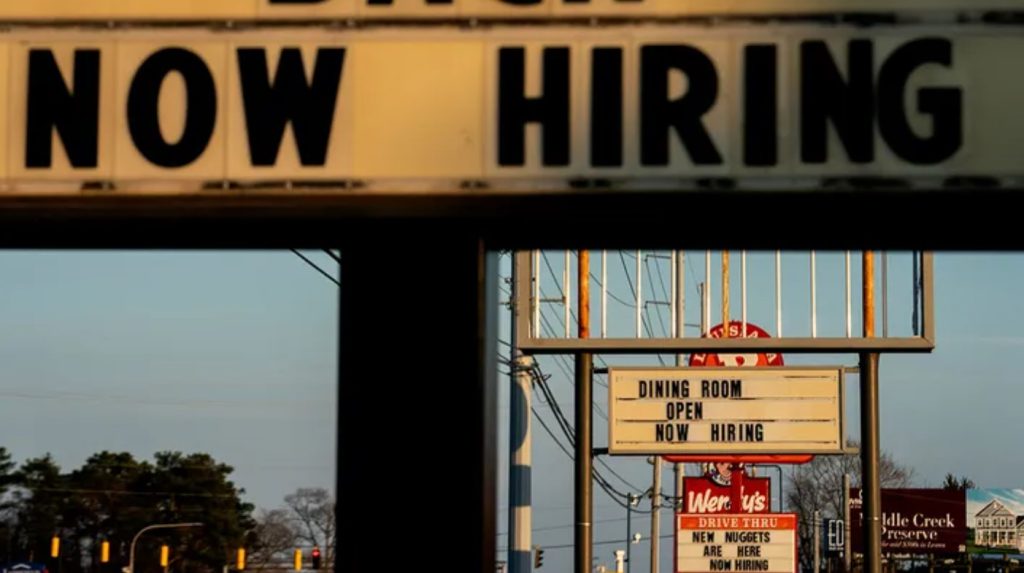
U.S. job growth cooled in August but hiring likely remained healthy enough last month for the Federal Reserve to approve another jumbo interest rate hike when it meets later this month.
Employers added 315,000 jobs in August, the Labor Department said in its monthly payroll report released Friday, in line with the 300,000 jobs forecast by Refinitiv economists. That marks the lowest monthly gain since April 2021 and is a major decline from the 526,000 jump recorded in July.
The unemployment rate, meanwhile, unexpectedly ticked up to a six-month high of 3.7% as the labor force participation rate increased.
Wages also continued to rise, but came in lower than forecasts. Average hourly earnings increased 0.3% for the month and 5.2% from the previous year, slightly below the respective 0.4% and 5.3% estimates from Refintiv.
Although markets reacted positively to the report initially, stocks closed lower on Friday after the employment data left open the possibility of another 75 basis point interest rate hike later this month. The S&P 500 finished down 1.1%, while the Dow Jones Industrial Average dropped 1.1% and the Nasdaq fell 1.3%.
“This data does little to derail the Fed from its current monetary policy path,” said RSM chief economist Joe Brusuelas. “We call on the Fed to lift the policy rate by 75 basis points, and it should attempt to lift the Federal Funds rate to 4% by the end of the year.”
While monthly jobs data is always important, the Federal Reserve was closely watching this particular report for signs the labor market is starting to slow down from its frenzied pace as policymakers try to wrestle inflation, which is still running near a 40-year high, back to 2%.
Policymakers already approved consecutive 75 basis point interest rate hikes in June and July and have signaled that another increase of that magnitude is on the table in September, depending on the forthcoming economic data.
Friday’s report provided little insight into whether the Fed will go with a three-quarter percentage point increase, or a slightly smaller but still large half-point hike. Experts say the evenness of the report leaves the door open for a third, 75 point increase.
“Despite the weaker job gains over August and the rise in the unemployment rate, it is unlikely that these figures will dissuade the Fed from a further sharp increase in interest rates during the September FOMC meeting,” said Ben Ayers, senior economist at Nationwide. “High inflation remains the primary focus with the labor market still showing signs of continued strength.”
Traders are already pricing in a 58% chance of another 75 basis point hike at the conclusion of the Fed’s two-day meeting on Sept. 21, according to the CME Group’s FedWatch tool, which tracks trading. Another 44%, however, think the Fed will go with a half-point hike instead.
The report came just one week after Fed Chairman Jerome Powell spooked the market with his keynote speech in Jackson Hole, Wyoming, during which he renewed the specter of an increasingly hawkish Fed that is determined to fight inflation, regardless of the potential economic fallout.
“While higher interest rates, slower growth and softer labor market conditions will bring down inflation, they will also bring some pain to households and businesses,” Powell said. “These are the unfortunate costs of reducing inflation. But a failure to restore price stability would mean far greater pain.”




























